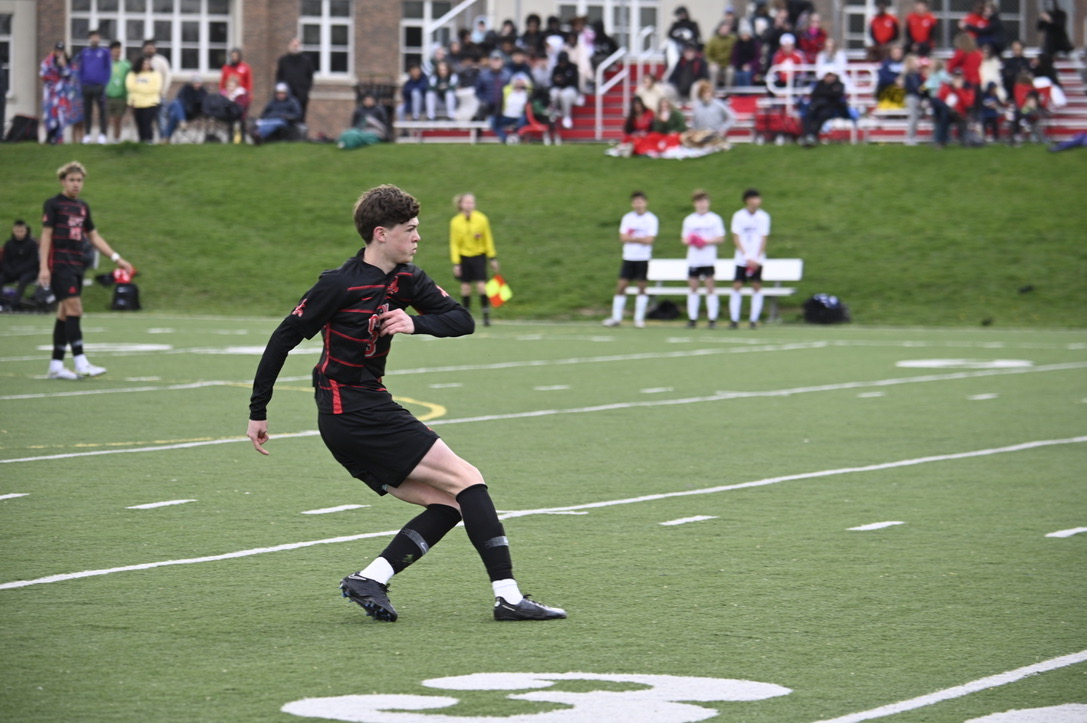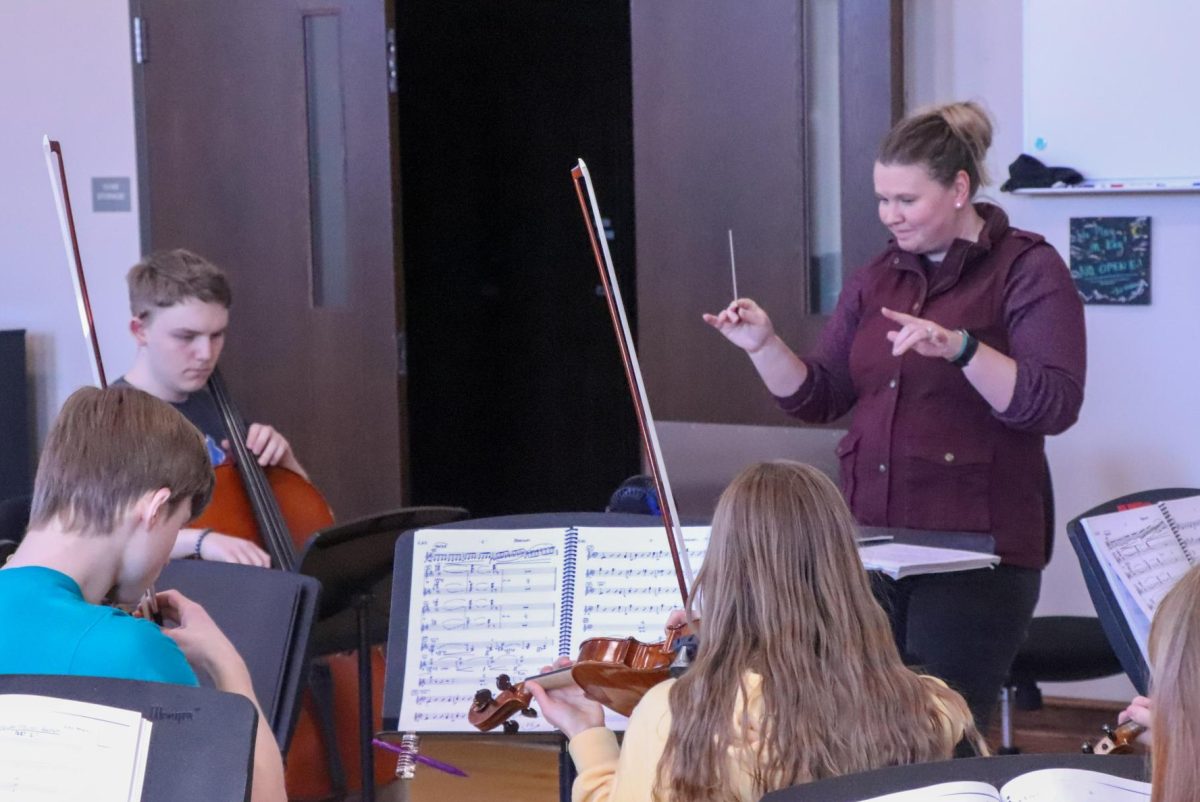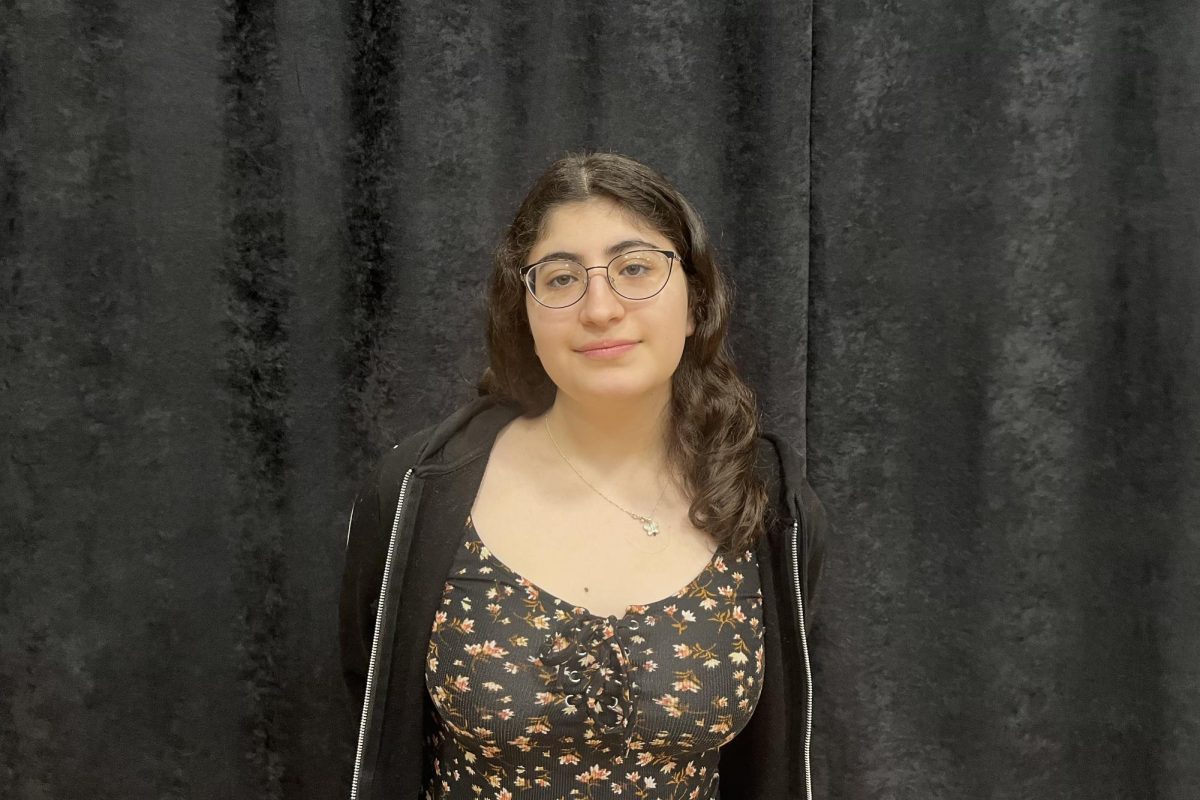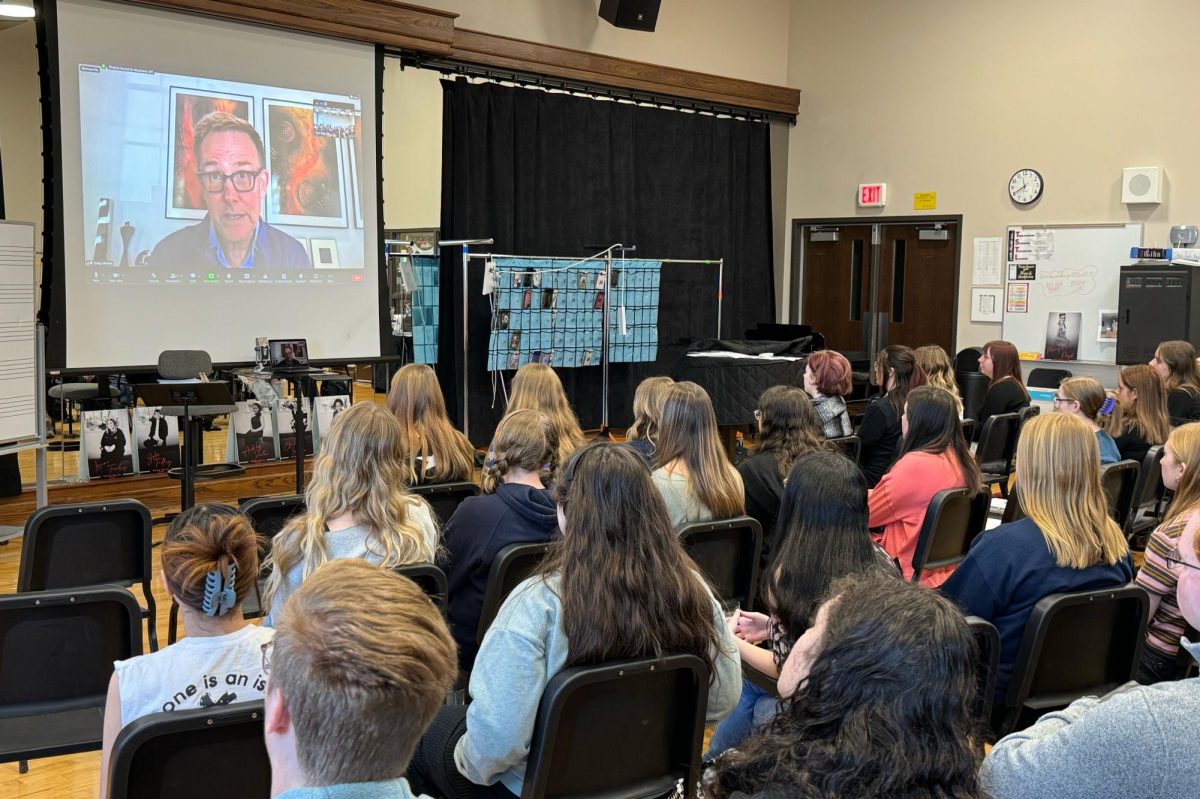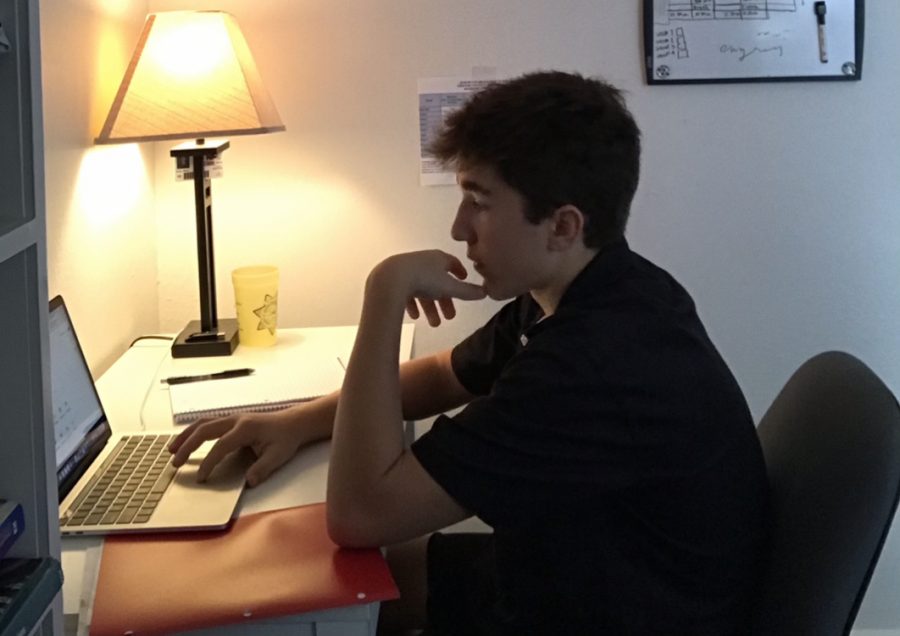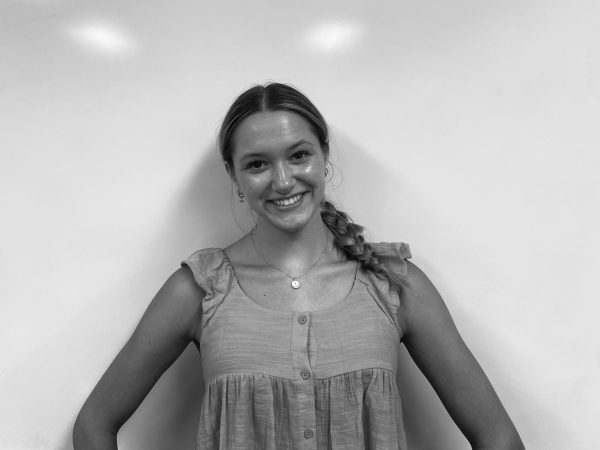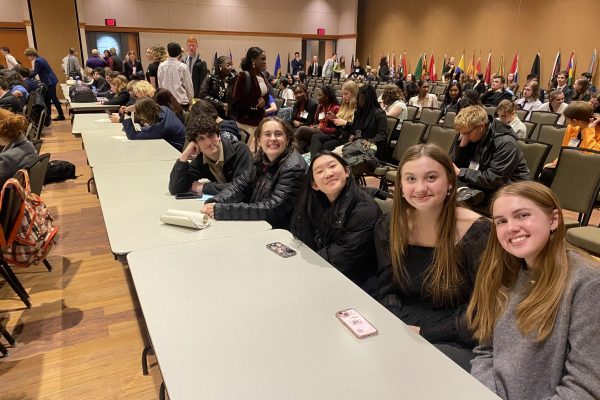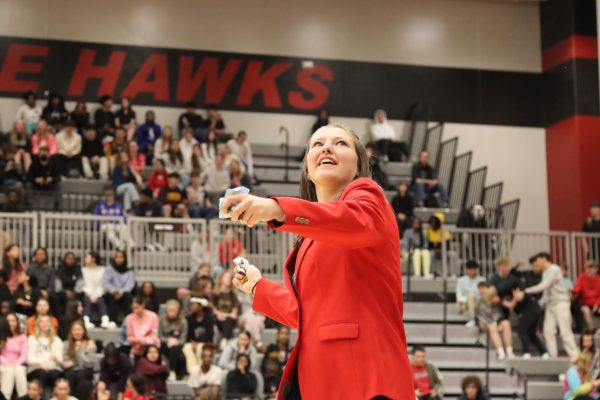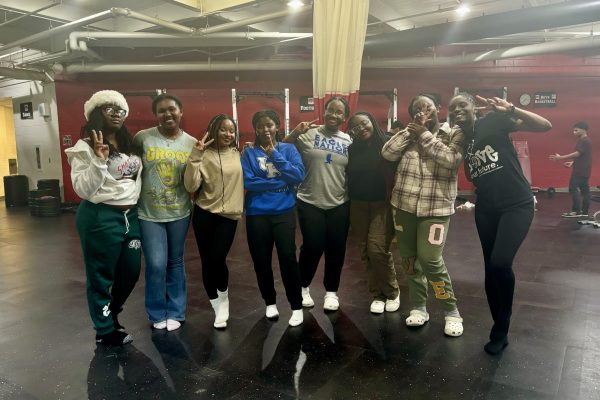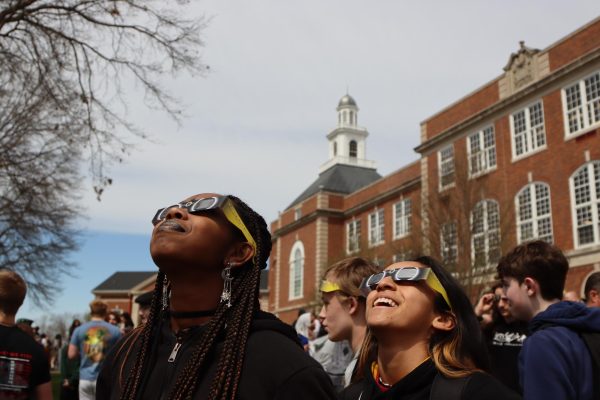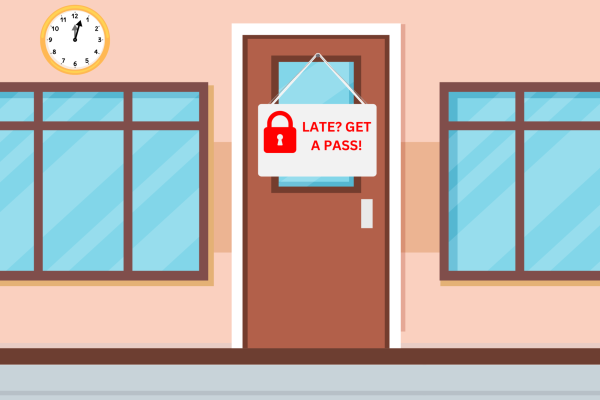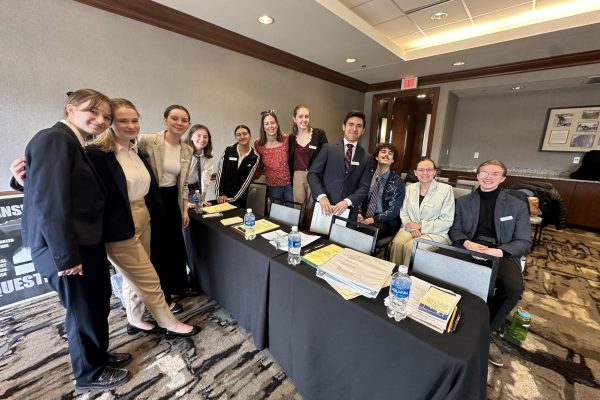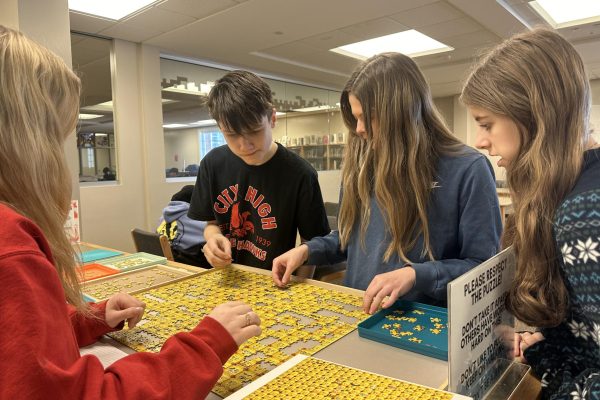Students Around the Globe Move to Online Education
Isaac Miller ’23 works at his computer during online classes.
October 27, 2020
The COVID-19 pandemic has brought a new way of schooling for students around the globe, including the students of City High School. The use of Zoom for class between teachers and students enrolled in the online program within the ICCSD has produced these questions: Should students have their cameras on while in an online class, and how does that affect their learning?
“Students having their cameras off makes it harder to teach. But I think it makes it harder to learn for the student,” Jason Schumann, an AP World History teacher at City High said.
Schumann observed that the majority of his students have their cameras off during online classes.
“It’s in my interest to be able to see you but it’s probably in your interest to be able to hear me,” Schumann said.
Noah Carey ‘23 of City High believes that students having their cameras on is favorable to him and to themselves. He believes it has a positive impact on the class.
“Classes that tend to have more kids who have their cameras on have a lot more participation and there’s a lot more of a sense of classroom community,” Carey said.
Schumann believes there are various benefits to keeping one’s camera on.
“I think [students having cameras on] helps them by creating a more immediate connection to the teacher and to one another. A lot of what learning is about is social engagement and interaction, and when you have your camera off, there’s a message that it might send that you are less interested and engaged in what’s being discussed from the teacher’s perspective,” Schumann said.
Carey discussed how his teachers must feel in classes with a large number of students who turned their cameras off.
“It’s just like a wall of blank screens, then they’re not going to maybe teach as well because they really have no basis, no way to base how they’re teaching because they have no reactions from students.”
Schumann understands that his students are not in a normal classroom environment, so problems will automatically arise, however, he does think that there are ways to maximize his ability to teach his students and for them to learn.
“It affects my ability to be able to read the body language of students to see, if they’re paying attention, or that they are acknowledging, if they’re following along and you get that through the non-verbal cues,” Schumann said.
Carey and Schumann both noted that having a camera off in class can also be a privacy or internet connection issue. They both understand and respect this factor. Carey and Schumann showed similarity in their views of an online class, however when asked about how to deal with and encourage students to have their cameras on during class they provided different answers.
Carey said he would be in favor of a district mandate to have students have their cameras on (excluding students who have internet or privacy issues).
“I honestly think it would be better than everybody having their cameras off all the time. I think that would be a better extreme,” Carey said.
Schumann says that a mandate like that would be too problematic; he offered other ideas.
“Activities where students are engaging with one another and interacting more I think students are more likely to turn cameras on. When breakout rooms are used or those sorts of things I think those are the times when students are more likely to want to turn their cameras on,” Schumann said.










